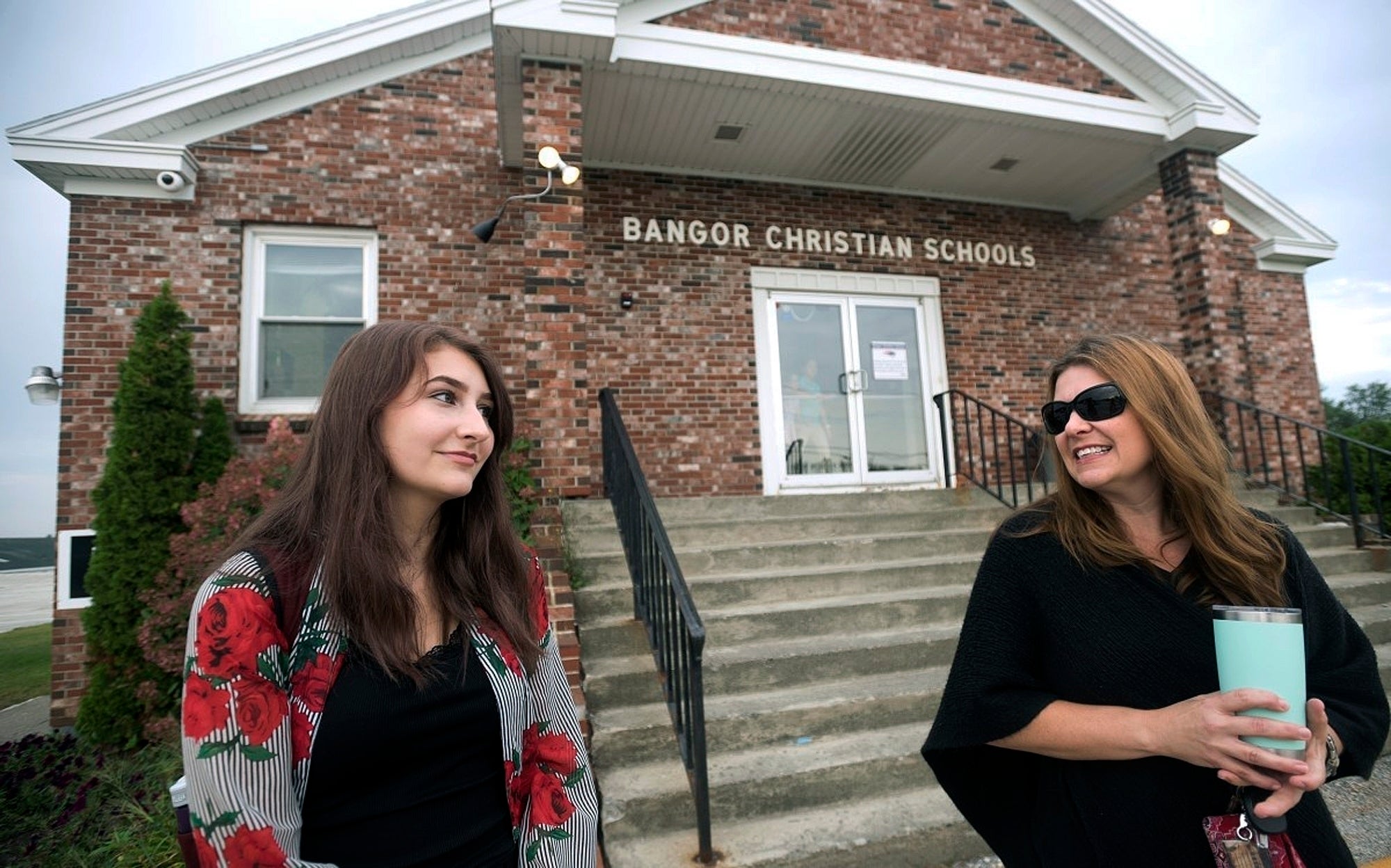Maine law thwarts impact of school choice decision, lawsuit says
A Christian school at the center of a Supreme Court decision that requires Maine to include religious schools in a state tuition program is challenging a state antidiscrimination law

Your support helps us to tell the story
From reproductive rights to climate change to Big Tech, The Independent is on the ground when the story is developing. Whether it's investigating the financials of Elon Musk's pro-Trump PAC or producing our latest documentary, 'The A Word', which shines a light on the American women fighting for reproductive rights, we know how important it is to parse out the facts from the messaging.
At such a critical moment in US history, we need reporters on the ground. Your donation allows us to keep sending journalists to speak to both sides of the story.
The Independent is trusted by Americans across the entire political spectrum. And unlike many other quality news outlets, we choose not to lock Americans out of our reporting and analysis with paywalls. We believe quality journalism should be available to everyone, paid for by those who can afford it.
Your support makes all the difference.A Christian school at the center of a Supreme Court decision that required Maine to include religious schools in a state tuition program is appealing a ruling upholding a requirement that all participating facilities abide by a state antidiscrimination law.
An attorney for Crosspoint Church in Bangor accused Maine lawmakers of applying the antidiscrimination law to create a barrier for religious schools after the hard-fought Supreme Court victory.
“The Maine Legislature largely deprived the client of the fruits of their victory by amending the law,” said David Hacker from First Liberty Institute, which filed the appeal this week to the 1st U.S. Circuit Court of Appeals in Boston. “It's engineered to target a specific religious group. That's unconstitutional.”
The lawsuit is one of two in Maine that focus on the collision between the 2022 U.S. Supreme Court ruling and the state law requiring that schools participating in the tuition program abide by the Maine Human Rights Act, which includes protections for LGBTQ students and faculty.
Another lawsuit raising the same issues was brought on behalf of the Roman Catholic Diocese of Portland; a Roman Catholic-affiliated school, St. Dominic’s Academy in Auburn, Maine; and parents who want to use state tuition funds to send their children to St. Dominic’s. That case is also being appealed to the 1st Circuit.
Both cases involved the same federal judge in Maine, who acknowledged that his opinions served as a prelude to a “more authoritative ruling” by the appeals court.
The lawsuits were filed after the U.S. Supreme Court ruled that states cannot discriminate between secular and religious schools when providing tuition assistance to students in rural communities that don’t have a public high school. Before that ruling — in a case brought on behalf of three families seeking tuition for students to attend a Crosspoint-affiliated school — religious schools were excluded from the program.
The high court’s decision was hailed as a victory for school choice proponents but the impact in Maine has been small. Since the ruling, only one religious school, Cheverus High School, a Jesuit college preparatory school in Portland, has participated in the state’s tuition reimbursement plan, a state spokesperson said.